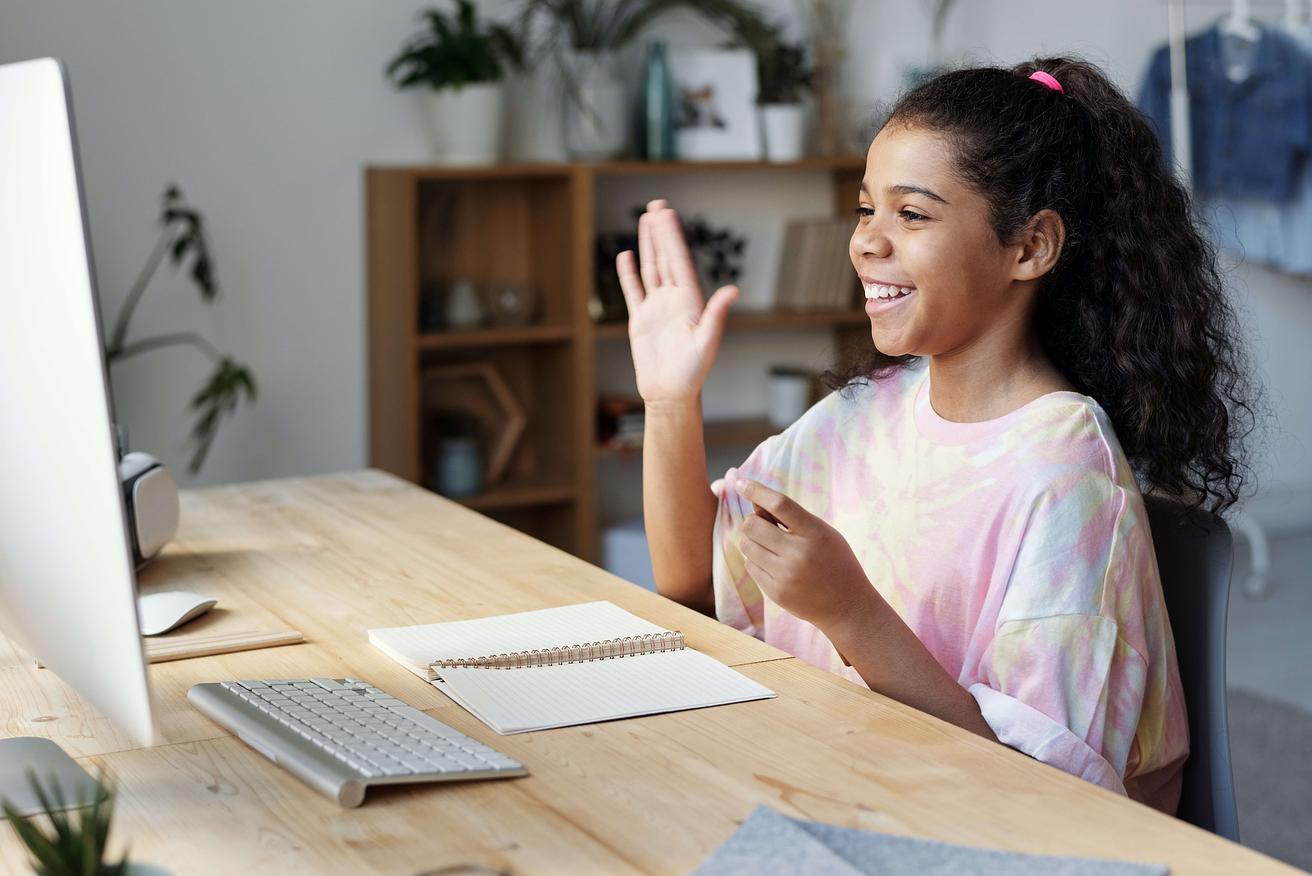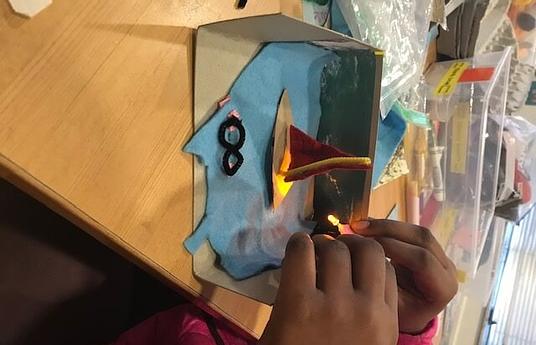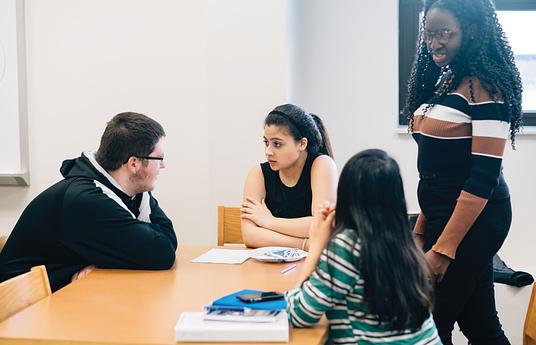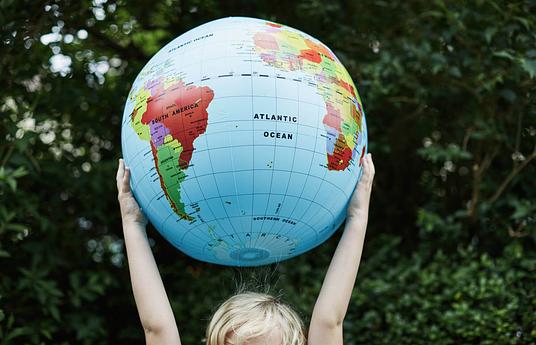According to UNESCO, almost 1.3 billion students have been affected by the novel coronavirus around the world. Schools have been trying to adjust to distance learning with very little notice and varying success. And students have been left to grapple with the fact that no one knows for sure when or if things will get back to normal.
Last week we sat down with over 45 young people from 18 countries in our first, Youth Voice Workshop. The goal of this workshop was to provide a safe space for young people to connect and share their experiences with others. The workshop was facilitated by our Head of Community and Impact, Pukhraj Ranjan, who is also the founder of our HundrED Youth Ambassador Program.
The workshop opened with a presentation from HundrED 2020 Innovator Peyton Klein, the Founder and Executive Director of the Global Minds Initiative. Peyton is a high school senior, fearless conversationalist, and community builder. The Global Minds Initiative works to combat cultural intolerance and discrimination in schools through its after school programs, which bring together English Language Learners with Native English Speaking Students. The initiative builds intercultural understanding and empathy through courageous conversations. Since its inception, Global Minds has expanded into 25 schools and 2 countries impacting over 2,600 students. Peyton praised her team’s ability to be flexible, open minded, and adaptable during this crisis. She encouraged participants to practice self-empathy and use the time intentionally to grow personally and not just academically.
Students were then asked to respond to a series of questions, both in the larger group and then in smaller break out discussions. Although the responses varied there were a few recurring themes. Below you will find the questions asked and a sample of the responses given. All identifying characteristics have been omitted for the sake of anonymity.
What are we tolerating?
“The uncertainty in what our future looks like, both academically, especially in terms of tertiary education, and socially”
Students, like all of us, are tolerating the uncertainty and the feelings of anxiety that this situation has brought into our lives. They are tolerating being stuck at home with their families, not being able to see their friends, and the endless distractions of home. They also described struggling to stay motivated and battling feelings of guilt for not being productive enough at home. One respondent spoke of the need for all people to be more tolerant. Tolerant of people’s differences and to stop assigning blame to particular groups. A few of the older students described tolerating the loss of their final year in school.
“I am tolerating the grieving process that has come with this end to my senior year.”
What are we appreciating?
“I think it's important to appreciate what we have more than mourn over what we lost because just waking up to a new day is a blessing and I think we all need to appreciate the fact that we have family and life is gonna be ok”
Some students expressed appreciation for the little things that they normally took for granted, like food and friends. One even mentioned appreciating now being able to snack during lessons. Others appreciate being able to take more time for themselves to think and grow. Another student reported a new found respect for their parents and teachers.
“I am appreciating the hard work that teachers are putting in to make online schooling happen. My parents both work at my school, so seeing that firsthand is something very eye-opening”
What are we learning from this new normal?
“I am more independent than I thought.”
Over and over students stressed the importance of being flexible and being able to adapt. And the realization that they were more independent than they had known. Several students commented that they were learning to be more self-disciplined and hold themselves accountable for their actions.
“I am learning so much about myself, others, and the strength that everyone around me has, how well we need to be able to self direct our learning in the day”
Many students stressed the importance of reaching out to those they knew were struggling. Although all of the participants were quite young many seemed acutely aware of their own mortality.
“Time passes faster than we thought and we must try to catch the opportunities that we are having right now”
How will this transform the way we learn as young people?
“This could help people become more proactive, independent and adaptable learners.”
This question again brought up a move towards self-directed learning. There were also many references to online learning and the importance of technology in education. One student pointed out the need for more variation in academic programs and curriculums. Another student commented that we may see a shift away from the 4 year college path. While yet another student called for a transformation in the way society treats young people.
“By showing everyone that we aren't just "moody" teenagers but we actually have a voice and we can speak with that voice.”
What is the one piece of advice you have for teachers when transitioning back post-pandemic?
“Let your students move at their own pace as they adjust to life post-pandemic. Be considerate and LISTEN, to all of your students. Some might not have the resources or maybe aren't ready to jump back to school before COVID-19.”
An overwhelming amount of students called for more empathy from their teachers. They asked that teachers slow down, be flexible, and not burden their pupils with insane amounts of course work. Teachers were asked to focus on relationships and take the comeback slowly, one student replied “continue doing video meets (at least virtual face to face interaction!).” Another asked:
“Try to be understanding. Understanding of how this has impacted your students' lives. Understand that their priorities in life may not align with yours. We're all people, trying to find our way through the world.”
A number of participants expressed gratitude for the chance to be heard and to connect with other students from around the world, all living through this shared experience. Pukhraj ended the session by asking all the participants to sign off by saying goodbye in their mother tongue. After a few awkward giggles a chorus of goodbyes rang out from across the globe.
We will be opening applications for the next cohort of HundrED Youth Ambassadors in November at the HundrED Summit. You can find out more about our Youth Ambassadors Fellowship Program by emailing pukhraj.ranjan@hundred.org




